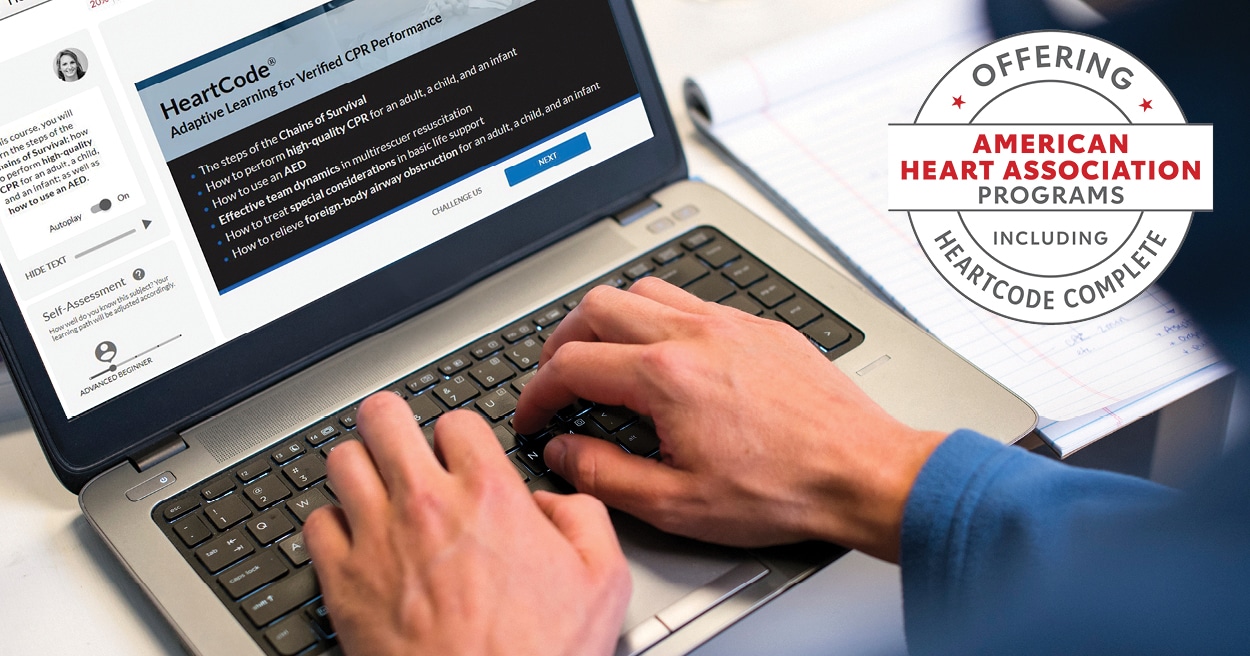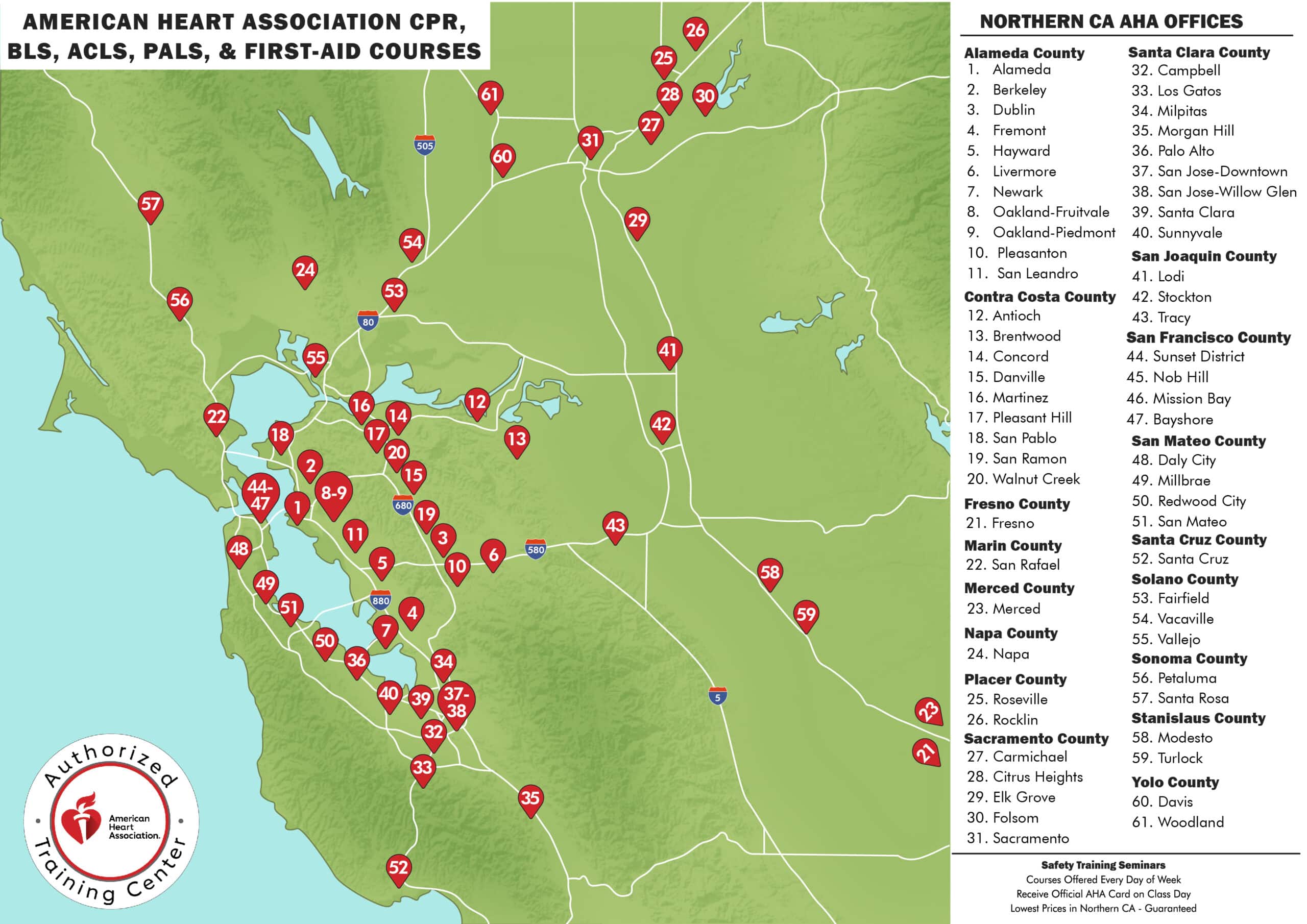American Heart Association© PALS Certification Classes in Minnesota

American Heart Association© PALS
Course Name: PALS Pediatric Advanced Life Support (Initial or Renewal)
Online Course Length: 3-4 hours (At your home.)
Skills Testing: 30-40 minutes (At one of our over 55 testing sites.)
Price: $290 (This includes the online PALS course, skills testing, & PALS card.)
Certification: American Heart Association© PALS certification card.
When: PALS classes are offered Monday – Sunday from 7 am to 6 pm
Card Issuance: You will receive the PALS certification card on day of class.
Add ons available: ACLS, BLS, First-aid, Opioid, or Bloodborne Pathogens
Low Price Guranetee: Lowest Prices in Minnesota, CA. Price matching policy.
Registration: View PALS Courses in Minnesota Or Another City Near You
Store locator is loading from StoreRocket Store Locator App..

Ensuring Pediatric Emergency Care: The Importance of American Heart Association PALS Classes in Minnesota
When it comes to emergencies involving children, timely and expert medical intervention is critical. Minnesota, with its diverse population and extensive healthcare system, places a strong emphasis on pediatric emergency preparedness. Among the most important resources available to healthcare providers in the state are Pediatric Advanced Life Support (PALS) classes offered by the American Heart Association (AHA). These classes provide healthcare professionals with the specialized skills and knowledge necessary to recognize and respond to life-threatening pediatric emergencies.
In this article, we’ll delve into the significance of AHA PALS classes in Minnesota, the structure of the course, how it impacts healthcare professionals, and how these classes ultimately contribute to saving young lives across the state.
Understanding the Importance of PALS Classes
While many people are familiar with adult CPR and emergency response techniques, children and infants require different approaches in medical emergencies due to their unique anatomy and physiology. Pediatric emergencies, such as respiratory distress, cardiac arrest, and shock, demand quick and specialized interventions. In Minnesota, as in the rest of the U.S., healthcare providers must be well-trained in pediatric-specific life support to manage these crises effectively.
PALS classes are designed to train healthcare professionals on how to assess, manage, and treat critically ill or injured children. These courses go beyond basic life support (BLS) training, focusing on advanced interventions for children and infants in emergency situations. Whether working in an emergency department, intensive care unit, or as part of an emergency medical services (EMS) team, PALS certification is essential for anyone involved in pediatric care.
The Role of American Heart Association PALS Classes
American Heart Association PALS classes play a critical role in ensuring that healthcare providers are equipped to handle pediatric emergencies with confidence and skill. The course covers several core components, providing participants with the tools and knowledge to respond effectively in pediatric emergency situations.
Key Components of PALS Training:
Recognizing and Managing Respiratory Distress and Failure: Children are more prone to respiratory emergencies than adults. PALS training teaches healthcare providers how to quickly assess and manage pediatric patients in respiratory distress or failure, preventing the condition from escalating into cardiac arrest.
Pediatric Cardiac Arrest and Arrhythmia Management: While cardiac emergencies in children are less common than in adults, they can occur due to congenital heart defects, drowning, or trauma. PALS classes teach advanced techniques for managing pediatric cardiac arrest, including CPR, defibrillation, and administering life-saving medications. Healthcare providers also learn to identify and treat abnormal heart rhythms (arrhythmias) that may lead to cardiac arrest in children.
Shock and Circulatory Failure: PALS training covers the recognition and treatment of different types of shock, including hypovolemic, cardiogenic, and septic shock. Early identification and intervention are critical in preventing organ failure and improving survival rates.
Team Dynamics and Communication: In pediatric emergencies, clear and effective communication between team members is vital. PALS classes emphasize team dynamics, leadership, and communication, ensuring that all team members work cohesively and follow protocols during high-pressure situations.
Airway Management and Ventilation: PALS providers learn advanced airway management techniques, including intubation, ventilation with a bag-valve mask, and managing obstructions, all of which are crucial in pediatric emergencies.
Post-Resuscitation Care: After stabilizing a pediatric patient, healthcare providers must continue to provide high-quality care to ensure the best possible outcomes. PALS courses include training on post-resuscitation care, addressing how to monitor and manage children after initial emergency treatment.
By mastering these skills, healthcare providers become better equipped to deliver fast, effective care in pediatric emergencies, improving the chances of survival and recovery for critically ill or injured children.
Accessibility of PALS Classes in Minnesota
One of the great strengths of AHA PALS classes is their accessibility across Minnesota. From large hospitals in Minneapolis and St. Paul to smaller healthcare facilities in rural areas, PALS training is readily available to healthcare professionals throughout the state.
Healthcare institutions like the Mayo Clinic, University of Minnesota Medical Center, and Children’s Minnesota regularly offer PALS certification courses for their staff. These institutions recognize the importance of PALS certification for pediatricians, nurses, paramedics, and other healthcare workers involved in pediatric care.
Additionally, the AHA offers both in-person and blended learning options for PALS certification, ensuring that participants can choose the format that best fits their schedules. Blended learning allows participants to complete the cognitive portion of the training online, followed by an in-person skills session for hands-on practice and evaluation. This flexibility is especially beneficial for busy healthcare providers who need to balance work and continuing education.
In rural Minnesota, where access to specialized pediatric care may be limited, PALS training becomes even more critical. Healthcare providers in these areas must be prepared to stabilize pediatric patients until they can be transferred to larger hospitals for advanced treatment. PALS certification equips them with the skills and confidence to manage pediatric emergencies effectively, even in resource-limited settings.
Tailored Training for Minnesota’s Healthcare Landscape
Minnesota’s healthcare system serves a diverse population, including urban and rural communities, immigrants, and indigenous populations. PALS classes are designed to meet the specific needs of healthcare professionals working in different environments and with diverse patient groups.
In urban centers like Minneapolis and St. Paul, where pediatric hospitals and specialized care facilities are more accessible, PALS training focuses on rapid, high-intensity interventions in hospital emergency rooms and intensive care units. In contrast, healthcare providers in rural Minnesota, where children may need to be stabilized and transported over long distances, may face different challenges. PALS training in these areas emphasizes stabilization, airway management, and teamwork, as healthcare workers often need to act as a cohesive unit while awaiting the arrival of transport teams.
By tailoring the training to the realities of Minnesota’s healthcare landscape, PALS courses ensure that all healthcare professionals—whether working in busy urban hospitals or small rural clinics—are prepared to deliver high-quality care to pediatric patients.
Building Confidence and Preparedness in Healthcare Providers
One of the most significant benefits of PALS certification is the confidence it instills in healthcare providers. Pediatric emergencies can be particularly stressful due to the high emotional stakes and the unique challenges posed by treating infants and children. PALS training gives participants the knowledge, hands-on experience, and clinical algorithms they need to act quickly and accurately in these critical situations.
Through simulated pediatric emergencies and practical case scenarios, participants learn to apply their skills in real-world situations. This hands-on approach not only reinforces the material covered in the course but also helps build the mental preparedness needed to perform well under pressure.
In Minnesota’s hospitals, clinics, and emergency services, PALS-certified healthcare providers play a vital role in improving outcomes for pediatric patients. Their ability to deliver high-quality, timely care in emergency situations can make the difference between life and death.
Making a Difference in Minnesota’s Pediatric Healthcare
The impact of PALS training is felt across Minnesota, as healthcare professionals who complete these courses are better equipped to respond to pediatric emergencies. By mastering the advanced life support techniques taught in PALS classes, healthcare providers can improve survival rates and outcomes for critically ill or injured children.
In a state where healthcare excellence is a priority, having well-trained pediatric care teams in hospitals and emergency services is essential. Families in Minnesota can rest assured that when pediatric emergencies occur, PALS-certified healthcare professionals are ready to provide the highest standard of care.
Conclusion: Empowering Healthcare Providers Through PALS Training
American Heart Association PALS classes are an invaluable resource for Minnesota’s healthcare system. These courses equip healthcare providers with the specialized skills needed to respond effectively to pediatric emergencies, improving outcomes for young patients across the state.
With accessible training options available in both urban and rural areas, PALS certification ensures that healthcare professionals in Minnesota are prepared to handle the unique challenges of pediatric care. As we continue to prioritize the health and safety of children, PALS training will remain a cornerstone of emergency preparedness, empowering healthcare providers to save lives and make a lasting impact on pediatric healthcare in Minnesota.
FAQs
Who should attend PALS certification classes in Minnesota?
PALS certification classes are primarily designed for healthcare professionals who are involved in the management of pediatric patients, including pediatricians, emergency physicians, nurses, paramedics, and respiratory therapists.
How long does a PALS certification course typically last?
PALS certification courses usually span over two days, with a combination of didactic instruction, skills practice, and simulated scenarios to ensure comprehensive learning and skill mastery.
Is there a renewal requirement for PALS certification?
Yes, PALS certification is typically valid for two years, after which healthcare professionals are required to undergo PALS renewal courses to maintain their certification.
